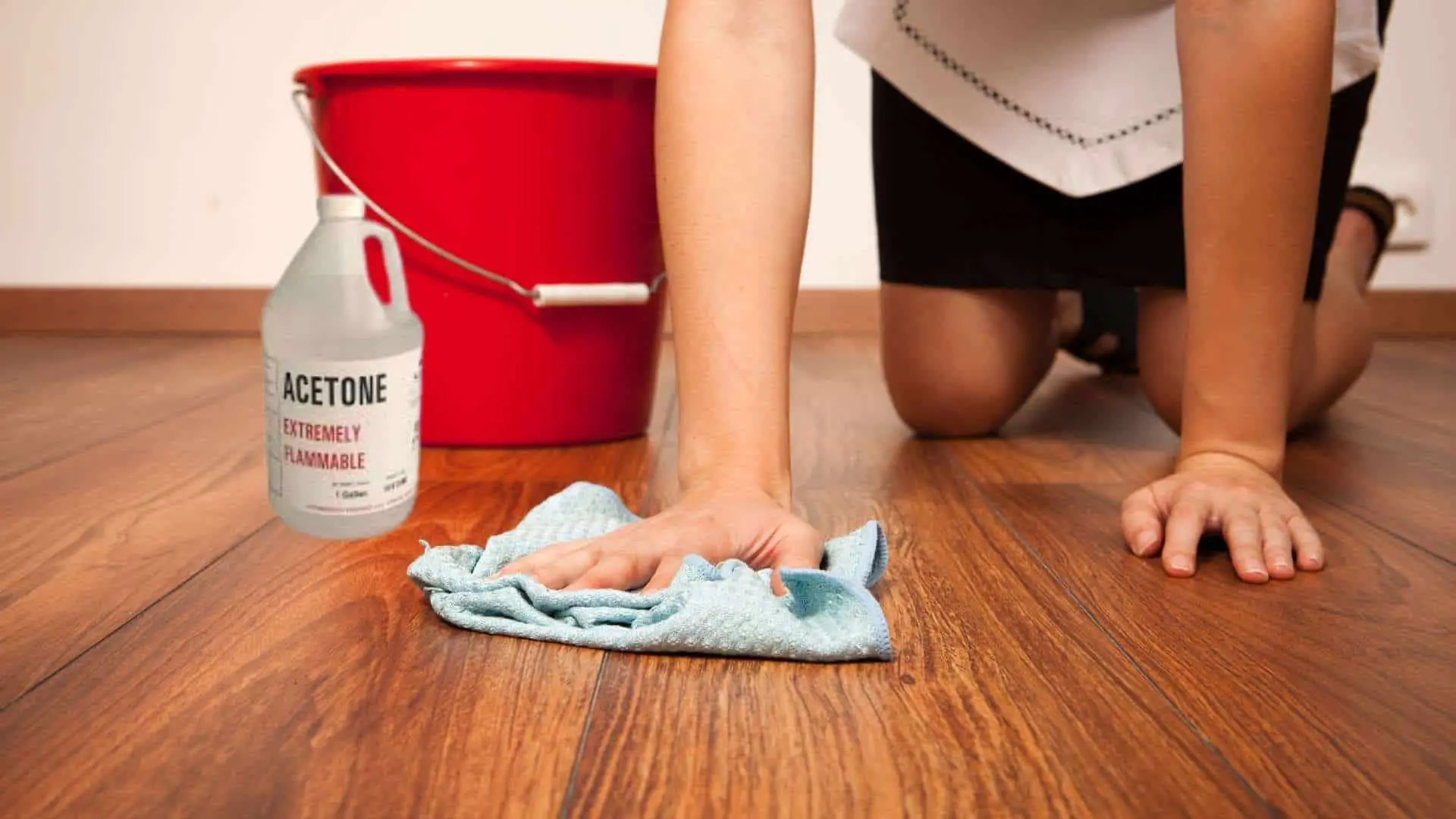Vinyl is flexible, waterproof flooring, highly delicate. This is one of the most used floorings in our modern days.
Many take pride in its shining capacity, appearance, and the unique and beautiful touch it adds to the structuring of homes and acetone is the most used stain remover by installers.
So, will acetone damage vinyl flooring? Yes, due to the high chemical composition of an Acetone, it tends to deform the delicate Vinyl flooring.
When it comes to Vinyl, specific challenges are attached to its installation, which several people see frustrating and somewhat unbearable.
It is one thing that installing this beautiful flooring has a staining issue. There is always glue staining on the vinyl floor after installation.
The worse is that there is no way the installation can be done without causing stains, no matter the professional level of the installer.
This is challenging and sad enough, and it has hindered people with so much interest in this kind of flooring from using it.
Related: How to get Ground in Dirt out of Vinyl Flooring the Right Way
Will Acetone Damage Vinyl Flooring?
Table of Contents
Acetone, also known as propanone, is commonly used to remove stains. It is an organic chemical with high volatility (it evaporates quickly).
It is made up of a powerful chemical with high adhesion capacity. It is mainly and often used after installation to clean up glues and stains.
The question now is, does Acetone affect the Vinyl floor? Having discussed the make-up of Vinyl and the challenge in installation, Acetone gets introduced to the equation to clean up the stain in other to maintain the beauty of the flooring.
However, due to the high chemical composition of an Acetone, it tends to deform the delicate Vinyl flooring.
This is another great challenge. Acetone is the most used in removing stains on floors after installation because of its strong chemical composition.
This isn’t good enough for Vinyl because the chemical capacity of this solvent tends to be higher than that which a vinyl floor can retain.
Ways of Using Acetone on Your Vinyl Floor
It tends to deform the appearance of this delicate floor. However, there is a way you can still use this Acetone on your vinyl floor that will not cause damage to it. It takes these processes;
1. Scrap away the stains using a hand scrapper. Apply the scrapper gently and carefully to the floor.
2. Clean up the scrapped part.
3. Take some precautions as you are about to invite the chemical. Use hand gloves, a face mask/nose mask (Acetone has a potent odor), and do well to ventilate the room. Open the windows and doors.
4. Pour some amount of Acetone into a container. Take a toothbrush, dip it inside the Acetone and brush the stained part of the floor. Brush it well till you finally get rid of the stains.
5. Use a soakable cloth soaked with water (moderately wet) to clean up the surface. Ensure you clean it well.
There is good news, and there is still a way to remove stains on vinyl floors without using Acetone.
You can mop the surface of Vinyl flooring without affecting the structure by using something else instead of deforming the structure with a chemical higher than its capacity.
You may not want to take the risk of using Acetone on your vinyl floor.
Here is what you can do:
Read: Non Staining Rugs for Vinyl Floors
How to Remove Stains on Vinyl Floors without Using Acetone
Hot water is a domestic means of removing stains on surfaces. It can dissolve glues and other adhesions.
This is also having an issue with Vinyl in that Vinyl is a very flexible flooring made of delicate material.
Using boiling water on it can melt or affect its surface. You don’t need to withdraw, and you can use warm water Instead to remove stains on vinyl floors. Here are the steps to go about;
1. Get warm water in a bucket. Ensure it is not too hot to avoid the above effect on your floor and avoid skin injury by hotness. A moderately warmed water can do the work.
2. Get a mop or soakable clothes like a towel. This will help to rub the surface of the vinyl floor that is stained.
3. Pour warm water on the stained surface and leave for a few seconds (of about 30 seconds). This is to let the water soften the stain before robbing.
4. After you have allowed the water to soften the stain, apply your mop or towel by rubbing it on the floor’s surface. When you are done mopping, clean up with water and get rid of the water.
5. Use a scraper to scrape the surface of the Vinyl to remove the leftover glues. It would be best if you used the scrapper gently on the surface.
6. Clean up the scrapped surface with a cleaned mop.
7. Sometimes, depending on the quality of the stains and how long it has been there, warm water alone might not be enough to do the job effectively.
All you need to do in this case is to introduce some amount (depending on the quantity of water) of citrus solvent inside the warm water. This will aid the removal of the stains.
Read: How to Remove Spray Paint From Vinyl Floor
Conclusion
Yes, Acetone damages Vinyl flooring, but you can take the above measure to apply it strategically with no effect or use the other method.
We wrote this article about will acetone damage vinyl flooring to help give you clarity when faced with using acetone on your vinyl flooring.
We hope you found it helpful and informative. If you did, please share it across your entire social media pages.

